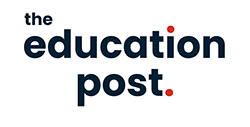When you think of a university library, you may picture a quiet space with bookshelves, people on laptops, or students completing assignments. It may surprise you to know that the university library offers more than just a quiet place to study. Many libraries provide courses that can help you succeed in your academic journey. Whether you’re a first-year student or getting ready to graduate, library courses can make a big difference in how you learn, research, and even present your work.
In this article, you’ll discover why you should consider taking a library course during your time at university. There are many benefits of a library course – they are more valuable than you may initially think they are.
1. Learn How to Do Better Research
One of the biggest reasons to take library courses is to improve your research skills, which help you academically as well. There is a lot more to academic research than typing in keywords, and you will learn in depth about this via your library course.
A library course teaches you how to find trustworthy sources, use academic databases effectively, and evaluate the quality of information. Additionally, you’ll learn how to spot biases in your and others’ articles and cite your sources properly, which is massively important while doing your college assignments.
When you take library courses, you get to learn how to work smarter, not harder.
2. Save Time on Assignments and Papers
A library course can help you avoid common problems every college student faces, such as not being able to find valid sources and getting stuck while doing your papers.
You’ll learn tricks for searching faster and more efficiently. For example, you might learn how to use Boolean operators (like AND, OR, and NOT) to narrow or expand your search results. You’ll also find out which databases are best for your field of study. Once you know these tools, you’ll spend less time searching and more time writing your paper. Your paper will have strong citations, which in turn will fetch you better grades.
By learning how to use the library’s systems early on, you’ll save yourself a lot of stress later.
3. Build Confidence in Your Academic Skills
University can be a bit overwhelming, especially if you’re not sure how to start an assignment or where to find good sources. Don’t worry, though – a library course gives you the tools you need to feel more confident in your work and not feel lost while you research for your paper.
Once you understand how to search for information, organize your findings, and cite your sources, you’ll feel more prepared. You won’t have to rely on your teachers or classmates for help, possibly delaying your paper. You’ll be able to handle assignments with more independence and skill.
The skills and confidence you gain from a library course don’t just help with your current classes, they stay with you throughout your academic career and life.
4. Understand Academic Integrity
You should also know that plagiarism is a serious issue in universities. Sometimes students plagiarize without even meaning to, just because they don’t understand how to properly use and credit sources. Library courses can clear up any confusion. You’ll learn how to avoid accidental plagiarism by citing sources correctly, using quotations, and summarizing responsibly. You’ll also understand what counts as original work.
5. Use Library Resources You Didn’t Know Existed
The library has a lot more than just books and databases. Many libraries offer services like research consultations, subject guides, digital archives, and even workshops on tools like citation managers or data analysis software.
A library course introduces you to these resources and shows you how to use them. You will learn how to request materials through interlibrary loan, how to use special collections for a history paper, etc.
6. Improve Your Digital Literacy
Digital skills are just as important as reading and writing in today’s world. Library courses often teach you how to find, use, and evaluate digital information at your discretion. In such courses, you will also learn how to navigate online journals, use eBooks, and even manage your digital files.
By building these skills, you’ll become a more informed and careful digital citizen, something that will benefit you in both your academic and personal life as you go on.
7. Get Support for Your Specific Major
Library courses aren’t one-size-fits-all. Many universities offer subject-specific library instruction. For example, if you’re in political science, you’ll focus on government documents and policy research, and they will be available to you via the library.
Taking a library course that’s tailored to your major helps you become familiar with the kinds of resources professionals in your field use. This gives you an advantage not only in class, but also when you enter the workforce.
8. Gain Skills That Employers Value
The skills you learn in a library course can help you get a job. Employers value people who can think critically, solve problems, and find reliable information on their own. Knowing how to do research, organize information, and communicate clearly shows that you have these skills. This makes you a more attractive prospect to your future employers.
These courses help you develop attention to detail, time management, and the ability to work by yourself, all traits that employers appreciate. Whether you’re writing reports, preparing presentations, or working with a team of your colleagues, the skills you learn will apply beyond the classroom and have real-life benefits.
9. Prepare for Graduate School (Masters and PHD)
If you’re thinking about going to graduate school, a library course is a great way to prepare. Graduate programs expect students to do advanced research and write in-depth papers. Having a strong foundation in research methods and information literacy gives you a good start and helps you lessen the academic burden when you start your program.
You’ll be more comfortable using citation sources, and you’ll already know how to handle the kind of work graduate-level courses require. This could make your transition smoother and increase your chances of success, while also bringing in better grades.
10. It’s an Easy Way to Boost Your Marks
Many library courses are less credit courses, which means they won’t overwhelm your schedule. The added bonus of this is that it will still help improve your grades in other classes. When you know how to research well, you’ll write better essays, complete assignments more quickly, and feel more prepared for exams.
Plus, these classes often have lower stress than other university courses. The material is practical, the workload is usually manageable, and the skills you gain are useful in real life.
Concluding Remarks
As a university student, you will have a lot on your plate. However, taking library courses is one of the simplest and most effective ways to improve your academic performance. You’ll gain research skills, build confidence, save time, and discover resources you didn’t even know were available. You must remember that your success isn’t always about working harder; it’s about learning smarter. And that’s exactly what a library course helps you do.



